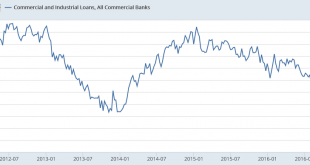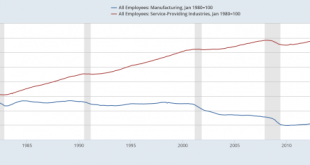Read More »
Behavioral vs Neoclassical Economics
from Asad Zaman In my paper entitled “Empirical Evidence Against Neoclassical Utility Theory: A Survey of the Literature,” I have argued that neoclassical utility theory acts as a blindfold, which prevents economists from understanding simple realities of human behavior. The paper provides many examples of this phenomenon, which I will illustrate briefly with one simple example in this post. Consider the two player Ultimatum Game. The Proposer (P) has ten dollars in single dollar bills....
Read More »No evidence to back idea of learning styles
On Sunday, the Guardian published a letter signed by a number of prominent psychologists, cognitive neuroscientists and the like. Coincidentally, the list includes Steven Pinker who I happened to be quoting in a post from the same day. Here’s the title: No evidence to back idea of learning styles Here are the first two paragraphs: There is widespread interest among teachers in the use of neuroscientific research findings in educational practice. However,...
Read More »Credit check
Keeps getting worse and looks to me like it’s well below stall speed:
Read More »Changing the story to hide the problem
from David Ruccio It’s obvious to anyone who looks at the numbers that the wage share of national income is historically low. And it’s been falling for decades now, since 1970. Before that, during the short Golden Age of U.S. capitalism, the presumption was that the share of national income going to labor was and would remain relatively stable, hovering around 50 percent. But then it started to fall, and now (as of 2015) stands at 43 percent. That’s a precipitous drop for a supposedly...
Read More »Kenneth Arrow (1921-2017)
from Lars Syll A democratic polity is supposed to be based on egalitarian distribution of political power. In a system where virtually all resources are available for a price, economic power can be translated into political power by channels too obvious for mention. In a capitalist society, economic power is very unequally distributed, and hence democratic government is inevitably something of a sham. In a sense, the maintained ideal of democracy makes matters worse, for it adds the...
Read More »Tony Blair, who brought us the war in Iraq, lectures on the evils of populism
from Dean Baker Tony Blair, the former Prime Minister of the United Kingdom, who is best known for lying his country into participating in the Iraq War, lectured NYT readers on the evils of populism. Once again he gets many key points wrong. He criticizes the left for abandoning centrist politicians: “One element has aligned with the right in revolt against globalization, but with business taking the place of migrants as the chief evil. They agree with the right-wing populists about...
Read More »Sadistic Gods
I was re-reading random parts of Pinker’s The Better Angels of Our Nature and came across this: In an insightful book on the history of force, the political scientist James Payne suggests that ancient peoples put a low value on other people’s lives because pain and death were so common in their own. This set a low threshold for any practice that had a chance of bringing them an advantage, even if the price was the lives of others. And if the ancients believed...
Read More »New geography, old inequality
from David Ruccio It’s true (as I have argued many times on this blog), the number of U.S. manufacturing jobs has been declining for decades now—and they’re not coming back. Instead, they’ve been replaced (as is clear in the chart above) by service-sector jobs. source And, not surprisingly, most new jobs (during the past year, as in recent decades) have appeared in urban centers. But the idea that service-sector job growth in some urban centers—or “brain hubs,” as The Geography of...
Read More »A Bleg
Good evening. Or a fine morning to you, whatever the case may be. I am working on a project in my spare time. Some of the data I am collecting might make for good blog posts. Anyway, there are a few things whose trajectory I’d like to measure historically. I have come up ideas for most of them, but there are a few for which I wouldn’t mind if somebody had a better idea than the one I came up with. Here are the ones that are troubling me. From colonial...
Read More » Heterodox
Heterodox




